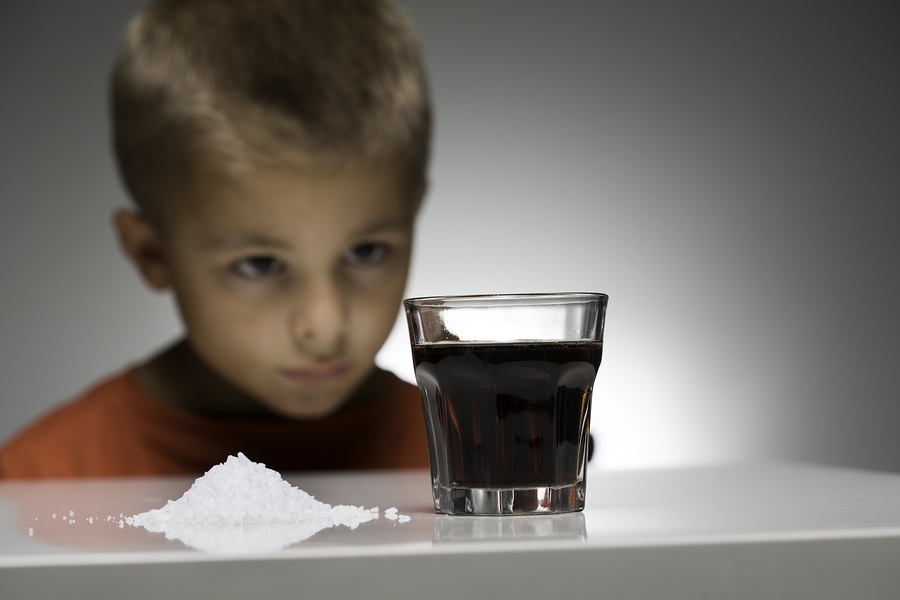 We know that the American diet for children is largely toxic and leads to obesity, type 2 diabetes, poor development, and many other chronic illnesses. But we rarely discuss what it does to the brain.
We know that the American diet for children is largely toxic and leads to obesity, type 2 diabetes, poor development, and many other chronic illnesses. But we rarely discuss what it does to the brain.
Poor diet, especially one that is loaded with added sugar and artificial sweeteners, has a direct impact on a child’s brain chemistry. After all, obesity isn’t just a problem in the belly. It’s a problem in the brain because too much sugar creates a never-ending cycle of food cravings that cause kids to overeat.
Added sugar and manmade artificial sweeteners, which are toxic to the liver and reproductive organs, cause an immediate biochemical change in the body. As a result, certain neurotransmitters are released in the brain. Some children are more sensitive to these neurotransmitters and become depressed, anxious, or hyper. Some have memory issues and struggle to think clearly. Many have learning disabilities at school.
When a child is diagnosed with ADD, ADHD or a learning disability, or a child has anxiety or panic attacks, this is often viewed as a mental or emotional problem. While there may very well be a mental and emotional component, these issues can often be traced back to a sugar-heavy diet.
We need to measure the child’s sugar load and, if necessary, detoxify the child to restore his or her brain chemistry to optimal levels. A major problem is that sugar is hidden in so many of our foods, so it can be hard to completely remove sugar from our diet.
Sugar can also affect the balance between good and bad bacteria and weaken the immune system. It can prevent kids from getting a good night’s sleep. Some children are incorrectly diagnosed with allergies when the real cause of their chronic runny nose and cough is too much sugar. It’s difficult for a child to think clearly, focus and stay motivated when they’re sick and tired all of the time.
As I said in a previous post, neurodegeneration is a primary area of focus throughout 2016 at Natural Healthcare Center. Neurodegeneration refers to gradual deterioration of brain function that results from the damage and death of brain cells.
Some studies suggest a link between high sugar consumption and the onset of neurodegenerative diseases such as Parkinson’s and Alzheimer’s. In fact, some scientists have even referred to Alzeheimer’s as “type 3 diabetes” because of the role a person’s diet may play in developing the disease.
We rarely talk about these types of conditions as they relate to children. When it comes to sugar and children, we often focus on neurohyperactivity. But the habits we allow our children to develop at a very young age can lead to the kinds of habits that will make them very unhealthy adults.
As parents, we need to limit our children’s sugar consumption. There are plenty of natural sugars that we can use to satisfy the sweet tooth. We all know that children shouldn’t consume soda and sports drinks, but fruit juice sold in stores can be just as bad, even if the label says “no sugar added.” The healthiest fruit juice is found in the package God created. In other words, just eat the apples and oranges instead of drinking the juice from the grocery store!
It’s okay to have a piece of cake at a birthday party or a small bowl of ice cream as a special treat. But it’s not okay for kids to have added sugar or artificial sweeteners with every meal. Let’s educate our children about the effects of sugar and instill habits that help to keep them healthy, now and in the future.